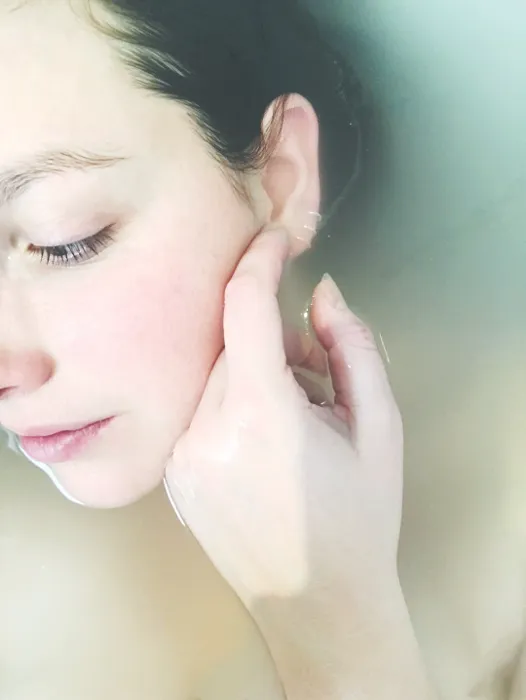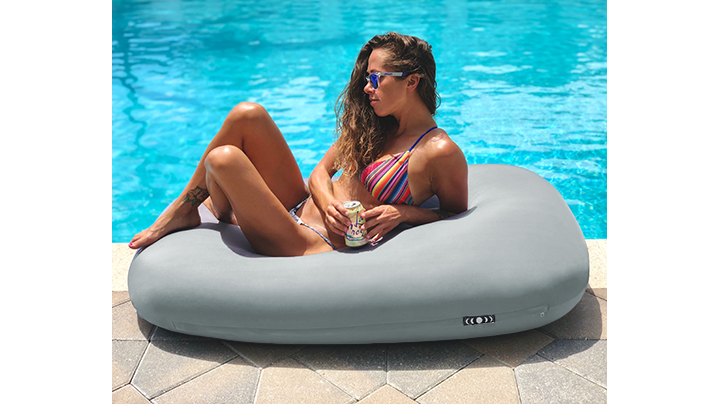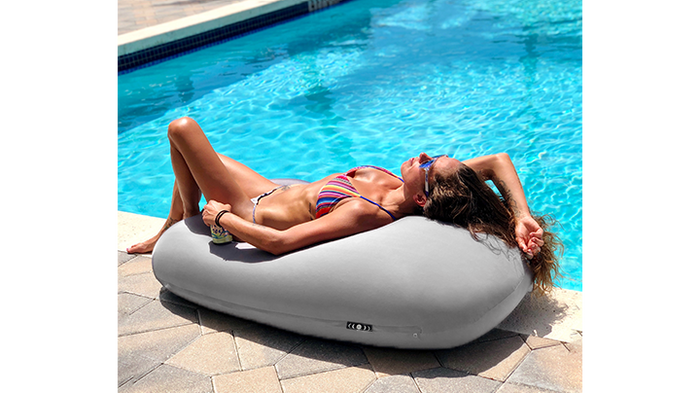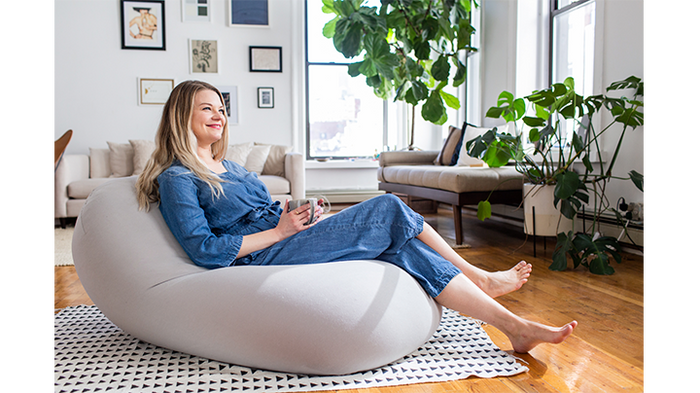57 BEST Tips On Does Sunscreen Make Your Skin Lighter (Top)

-
Does Sunscreen Make Your Skin Lighter?
- What is Sunscreen?
- Does Sunscreen Make Your Skin Lighter?
- How to Lighten Your Skin?
-
Benefits of using sunscreen?
-
Types of sunscreen?
- Physical (mineral) Sunscreens
- Chemical (Organic) Sunscreens
-
How to apply sunscreen?
-
Foods that help to lighten the skin?
-
Natural remedies to lighten skin?
-
Can natural remedies replace skin lightening cream?
-
How to use natural remedies
-
-
Best ways to really lighten my skin
-
FAQs (Frequently Asked Questions)
-
What people say whether sunscreen make your skin lighter
-
What people say about making make skin lighter
- Conclusion
-
Please note
Disclosure: Some of the links in this article may be affiliate links, which can provide compensation to me at no cost to you if you decide to purchase. This site is not intended to provide financial advice and is for entertainment only.
Does Sunscreen Make Your Skin Lighter?
With skin cancer being a major concern these days, it is not surprising to see people be more conscious about their skin and take measures to protect it from the harsh rays of the sun.
Sunscreen is one such measure. Sunscreen usage is essential to protect your skin from the harmful effects of UVA and UVB radiation.
However, the question arises: Does sunscreen make your skin lighter?
What is Sunscreen?
Sunscreen, also known as sunblock, is a combination of chemicals that help to protect your skin from the sun's harmful ultraviolet (UV) radiation.
There are two categories of sunscreen: chemical and physical. Chemical sunscreens contain compounds that absorb UV radiation, while physical sunscreens reflect the UV radiation away from the skin.
Price: $13.93
Sunscreen is applied on the skin and helps to prevent sunburn, premature aging, and skin cancer caused by exposure to the sun.
It is recommended to apply sunscreen with an SPF (Sun Protection Factor) of at least 30 and to reapply every two hours when exposed to the sun.
Does Sunscreen Make Your Skin Lighter?
The simple answer to this question is no; sunscreen does not make your skin lighter. Sunscreen's primary purpose is to protect your skin from the sun's harmful rays and not to lighten your skin.
In fact, some sunscreens contain ingredients that may cause your skin to darken over time. This darkening is known as "tanning." Tanning occurs when UV radiation causes melanin production, which leads to the darkening of the skin.
It is essential to note that applying sunscreen regularly may help to prevent dark spots, hyperpigmentation, and sunburn, which can cause skin discoloration.
So, while sunscreen doesn't make your skin lighter, it does help to maintain an even skin tone.
Get this IDEAL Moon Pod super-fast!
Get more info about this Excellent Moon Pod!
How to Lighten Your Skin?
Now that we know sunscreen doesn't lighten your skin, let's look at some ways you can lighten your skin.
While there is no magic potion that will instantly lighten your skin, there are several things you can do to lighten your skin tone over time.
Price: $12.99
Buy this Ideal Sun Bum Original SPF 50 Sunscreen Face Lotion | Vegan and Reef Friendly (Octinoxate & Oxybenzone Free) Broad Spectrum Fragrance-Free Moisturizing UVA/UVB Sunscreen with Vitamin E , Yellow , 3 oz!
>> Click HERE <<
Use skin lightening products
Skin lightening products contain ingredients that help to inhibit melanin production, which leads to lighter skin. Some common skin lightening ingredients include kojic acid, vitamin C, and retinoids.
Exfoliate regularly
Exfoliation helps to remove dead skin cells, which can make your skin appear dull and dark. Regular exfoliation can promote cell regeneration, leading to brighter, lighter skin.
Stay hydrated
Drinking adequate amounts of water can help to hydrate your skin, promoting healthy skin turnover and leading to brighter-looking skin.
Price: $16.50
Avoid sun exposure
As mentioned earlier, UV radiation can cause melanin production, leading to darker skin. It is essential to protect your skin from the sun by wearing protective clothing and applying sunscreen with an SPF of at least 30.
Benefits of using sunscreen?
Sunscreen is a crucial component of skincare that helps to protect your skin from the harmful effects of the sun's ultraviolet (UV) radiation.
Here are some of the key benefits of using sunscreen:
1. Protects against skin cancer
Skin cancer is the most common type of cancer in the world, and most cases are caused by excessive exposure to the sun's UV radiation.
Sunscreen reduces the risk of skin cancer by preventing UV radiation from penetrating the skin and causing DNA damage.
Price: $9.58
2. Prevents premature aging
The sun's UV radiation breaks down collagen, a protein that gives skin its elasticity and firmness. As collagen is broken down over time, the skin loses its elasticity and wrinkles form.
By blocking UV radiation, sunscreen helps to prevent premature aging and keep skin looking youthful.
3. Reduces risk of sunburn
Sunburn is the visible sign of skin damage caused by overexposure to UV radiation.
Sunscreen helps to prevent sunburn by blocking UV radiation from penetrating the skin and causing damage.
4. Prevents hyperpigmentation
UV radiation can cause the skin to produce too much melanin, leading to hyperpigmentation or dark spots.
Sunscreen helps to prevent hyperpigmentation by blocking UV radiation and reducing melanin production.
Price: $10.39
5. Prevents sun damage on the eyes
The sun's UV radiation can also damage the eyes, leading to cataracts, macular degeneration, and other eye conditions.
Wearing sunscreen around the eyes can help to protect against these harmful effects.
6. Prevents sun damage to lips
The lips are one of the most vulnerable areas to sun damage, as they often lack melanin and have thin skin.
Sunscreen lip balms can help to protect the lips from UV radiation and prevent them from becoming chapped and dry.
Get this IDEAL Moon Pod super-fast!
Get more info about this Excellent Moon Pod!
7. Helps to maintain an even skin tone
UV radiation can cause uneven skin tone and dark spots. Sunscreen helps to maintain an even skin tone by blocking UV radiation and reducing melanin production.
Price: $34.00
8. Helps to prevent sun sensitivity
Some people are more sensitive to the sun than others, and excessive exposure to UV radiation can lead to rashes, hives, or even sun poisoning.
Sunscreen helps to prevent sun sensitivity by blocking UV radiation and reducing the chance of a negative reaction.
Get this IDEAL Moon Pod super-fast!
Get more info about this Excellent Moon Pod!
Get now SPECIAL DISCOUNT FOR MY READERS!
Yes, I Want To Check on My Discount NOW!
9. Safe for daily use
Sunscreen is generally considered safe for daily use and is essential for maintaining healthy skin. It is recommended to use sunscreen with a broad-spectrum SPF of 30 or higher and to reapply every two hours when exposed to the sun.
In conclusion, using sunscreen daily has numerous benefits, from preventing skin cancer and premature aging to maintaining an even skin tone and preventing sun sensitivity.
Incorporating sunscreen into your daily skincare routine is vital for maintaining healthy, youthful-looking skin.
Types of sunscreen?
There are two main types of sunscreens: physical (mineral) and chemical (organic). Both types provide sun protection, but they work differently. Here's a breakdown of each type:
Physical (mineral) Sunscreens
Physical sunscreens contain active mineral ingredients that create a physical barrier on the skin to block UV rays. These minerals include zinc oxide and titanium dioxide.
Price: $13.64
Advantages of Physical Sunscreens:
Broad-spectrum protection against both UVA and UVB rays
Start working immediately upon application
Ideal for people with sensitive skin or skin allergies
Non-irritating and non-comedogenic
Long-lasting protection
Protects against the full spectrum of UV light (UVA and UVB)
Get other OUTSTANDING products from Moon Pod Miracles Company!
Get SPECIAL offers. Get special DISCOUNTS!
Best Products:
EltaMD UV Physical Tinted Sunscreen – This sunscreen provides broad-spectrum SPF 41 protection while giving the skin a slight tint to even out skin tone.
La Roche-Posay Anthelios Mineral Sunscreen Gentle Lotion – This mineral sunscreen is fragrance-free, lightweight, and non-greasy, making it ideal for everyday use on sensitive skin.
Blue Lizard Australian Sunscreen – This mineral sunscreen is water-resistant for up to 80 minutes, making it perfect for a day at the beach or the pool.
CeraVe Mineral Sunscreen Lotion – This zinc-based sunscreen is lightweight and oil-free, making it suitable for all skin types.
Price: $41.00
Chemical (Organic) Sunscreens
Chemical sunscreens contain ingredients that absorb UV radiation and convert it into heat, which is then released from the skin.
The most common active ingredients in chemical sunscreens include avobenzone, oxybenzone, and octocrylene.
Advantages of Chemical Sunscreens:
They are typically lightweight and easy to apply
Can provide a more transparent finish, free of white or grey cast
Can be water-resistant for longer periods of time
May have added ingredients for added benefits such as for hydration, anti-aging and more
Get this IDEAL Moon Pod super-fast!
Get more info about this Excellent Moon Pod!
Best Products:
Neutrogena Ultra Sheer Dry Touch Sunscreen Broad Spectrum SPF 70 – This sunscreen is water-resistant and provides broad-spectrum protection while being non-greasy and lightweight making it ideal for everyday use.
Supergoop! Unseen Sunscreen SPF 40 – This clear, silicone-based sunscreen works well under makeup while providing broad-spectrum protection.
Shiseido Ultimate Sun Protection Lotion Wetforce SPF 50+ - This fragrance-free sunscreen works best for outdoor activities, as it is water-resistant even when you're swimming or sweating.
Price: $50.00
No matter your personal preferences or skin type, using any sunscreen to protect your skin from the sun’s harmful rays on a daily basis is essential.
Decide on the type of sunscreen that works best for you, whether physical, chemical, or a combination of both, and don’t forget to apply and reapply throughout the day to ensure adequate coverage.
How to apply sunscreen?
It is important to apply sunscreen properly in order to ensure maximum protection from the harmful effects of the sun’s ultraviolet (UV) radiation.
Here are the steps for how to apply sunscreen properly:
Apply sunscreen at least 15 minutes before sun exposure:
Sunscreen takes some time to be absorbed into the skin and provide full protection. Apply sunscreen at least 15-30 minutes before going outside.
Choose the right amount and SPF:
It is recommended to use one ounce (about a shot glass full) of sunscreen for one application to cover the entire body. Choose a broad-spectrum sunscreen with an SPF of at least 30 to provide protection against both UVA and UVB radiation.
Apply sunscreen to all exposed skin:
Make sure to apply sunscreen to all exposed areas of skin including the face, neck, ears, arms, and legs. Don’t forget areas like the tops of feet and hands, and the back of the neck.
Price: $22.49
Reapply often:
Reapply sunscreen at least every two hours or more if sweating or swimming to ensure complete protection.
Use the right technique:
Apply sunscreen evenly by dabbing it onto the skin and then gently rubbing it in until absorbed. Make sure all areas of the skin are covered including hard-to-reach areas like the back.
Don't forget sensitive areas:
Sensitive areas like the ears, nose, and lips are prone to sunburn and should be given extra attention. Use a lip balm with SPF protection to protect the lips.
Be mindful of clothing:
Clothing can provide an additional layer of protection from the sun, but not all clothing is created equal. Dark and tightly woven fabrics provide the most protection, and there are special UPF-rated clothes available.
Protect your eyes:
Sunglasses are an essential accessory for outdoor activities. Choose sunglasses that provide 100% UV protection and wear a hat to shade your face and scalp.
In conclusion, applying sunscreen properly requires selecting the correct amount and SPF of sunscreen, applying it evenly to all exposed areas of skin, and reapplying often.
Price: $26.99
Wearing protective clothing and sunglasses along with staying in the shade during peak sun hours are additional measures that can be taken to ensure maximum sun protection.
Foods that help to lighten the skin?
Eating certain foods can help to lighten the skin and promote an even, healthy glow.
Here are some of the best foods for achieving a lighter complexion:
Tomatoes:
Tomatoes contain natural bleaching agents that can help to brighten the skin. They also contain high levels of Vitamin C, which helps to boost collagen production and protect against free radical damage.
Berries:
Berries like strawberries, raspberries, blueberries, and blackberries contain antioxidant compounds that help to fight free radical damage and promote cellular renewal. These fruits also help to reduce dark spots and promote an even skin tone.
Green Tea:
Green tea contains catechins, a type of antioxidant that helps to reduce inflammation and fight free radical damage associated with aging. Drinking green tea on a regular basis can help to improve your complexion over time.
Avocado:
Avocados are packed with monounsaturated fatty acids (MUFAs), which help to nourish the skin from within and keep it moisturized. They also contain antioxidants like Vitamin E which can have a lightening effect on the skin when consumed regularly.
Citrus Fruits:
Citrus fruits such as oranges, lemons, limes, grapefruits and tangerines are rich in Vitamin C which is essential for maintaining healthy skin cells and collagen production. Consuming these fruits on a regular basis can help to achieve an even-toned complexion over time.
Nuts & Seeds:
Nuts & seeds such as almonds, pumpkin seeds, sunflower seeds, walnuts & cashews are rich in healthy fats that nourish the skin from within while providing antioxidant protection from UV radiation damage & premature aging signs caused by stress or environmental factors
Natural remedies to lighten skin?
While some people prefer to use skin lightening creams and treatments for achieving a lighter complexion, there are many natural remedies that can be used to naturally lighten the skin.
Price: $13.97
Here is a list of natural remedies for lightening the skin:
Lemon Juice:
The citric acid in lemon juice helps to remove dead skin cells and stimulate cell renewal, resulting in lighter and brighter skin over time. It also contains bleaching properties that help achieve an even tone complexion.
Aloe Vera:
Aloe vera has powerful healing properties due to its abundance of antioxidants, which help to reduce inflammation and promote cellular regeneration. Aloe vera also has natural lightening properties that can help to achieve lighter skin with consistent use.
Cucumber:
Cucumbers contain vitamins and minerals like Vitamin E, magnesium, zinc and potassium which nourish the skin from within and have lightening effects on dark spots or discoloration. Cucumber can be applied directly or as part of a face mask for best results.
Turmeric:
Turmeric has been used for centuries for its natural healing and antiseptic properties. It contains curcumin which is responsible for turmeric’s bright yellow hue as well as its ability to help reduce discoloration of the face as well as improve overall complexion when applied topically or ingested orally.
Yogurt:
Yogurt is rich in lactic acid, which helps exfoliate the skin and remove dead cells while promoting cell regeneration at the same time, resulting in softer, smoother, lighter-looking skin after regular use over time.
Potato Juice:
Potatoes contain an enzyme called catecholase which acts as a natural bleach on the surface of the skin when applied regularly over time, gradually lightening dark spots while improving evenness of complexion at the same time.
Can natural remedies replace skin lightening cream?
Natural remedies can be a great alternative to skin lightening creams and treatments, as they are often safer and less harsh on the skin due to their lack of chemicals.
Price: $29.99
While natural remedies such as lemon juice, aloe vera, cucumbers, turmeric, yogurt, and potato juice can help to lighten the complexion and reduce discoloration over time with regular use, they may not be as fast-acting or effective as chemical-based treatments.
It is important to consider one's particular skin concerns before opting for either method, as every individual will respond differently to each approach.
Additionally, it is also important to note that results from using natural remedies take much longer than those achieved through chemical-based treatment options.
How to use natural remedies
Natural remedies are a great way to lighten your skin over time. Here's how it works:
For natural remedies such as lemon juice, aloe vera, cucumbers, turmeric and yogurt, the ingredients should be applied directly to the skin and left for about 10 minutes before washing off with warm water.
For potato juice, grate a small amount of potatoes and extract the juice by pressing them in a cheesecloth or other cloth used for extracting liquid from solids. Apply this potato juice to the skin using a cotton ball and let it stay on the skin for around 20 minutes before washing off with water.
Additionally, one can also make face masks using these ingredients which can be applied twice weekly to help lighten the complexion faster with consistent use over time.
Overall, it is important to remember that everyone’s skin is different and will react differently to natural remedies as well as chemical-based treatments so it is recommended to consult a doctor or dermatologist if you have any concerns regarding their safety or efficacy before attempting any new skincare regime.
Best ways to really lighten my skin
Achieving lighter, brighter skin can be an arduous journey but it is one that can be made easier with the right knowledge and approach. Here are some of the best ways to help you lighten your skin:
Limit Your Sun Exposure:
Too much sun exposure can cause serious damage to the skin and lead to sunburns and premature signs of aging like wrinkles and dark spots.
Price: $27.75
Buy this Ideal Kojie San Skin Lightening Soap 135g LARGE (6-Pack)!
It is important to limit your time in the sun, wear protective clothing such as wide-brimmed hats, sunglasses, long-sleeved shirts, and use sunscreen on a regular basis.
Use Natural Remedies:
There are many natural remedies that can be used to lighten skin, including lemon juice, aloe vera, cucumbers, turmeric, yogurt and potato juice.
Each of these ingredients have antioxidant properties which help protect against free radical damage and promote cellular renewal for a brighter complexion over time.
Try Skin Lightening Creams & Treatments:
For those looking for more fast acting results, there are many over the counter creams and treatments available that contain ingredients such as hydroquinone or kojic acid which can help to lighten the complexion very quickly when used regularly.
It is important to read labels carefully before using any products on your face and talk to a doctor if you have any concerns or questions regarding their safety before using them regularly.
Eat Nutrient Rich Foods:
Eating foods that contain Vitamins A, C & E such as tomatoes, berries green tea avocados citrus fruits nuts & seeds will help achieve healthier looking skin from within while protecting against environmental damage caused by pollutants & toxins that can make skin appear dull & discolored over time.
Practice Good Hygiene:
Not only does practicing good hygiene improve overall well-being but it also helps promote healthy glowy skin by washing off dirt oil & grime build up on the surface of the skin which otherwise may create clogged pores leading to blemishes or dark spots due to infection or irritation of the skin cells at a deeper layer below surface level when left unchecked.
Price: $17.96
Buy this Ideal Caro White Lightening Beauty Cream 500 ml (2 Large Jars)!
Get Enough Rest:
Getting enough restful sleep every night helps promote even toned healthy looking complexion from within as lack of sleep can affect blood flow rates leaving behind characteristic dark circles under eyes making you appear more tired than usual even after considerable amount of makeup application attempt .
FAQs (Frequently Asked Questions)
Does wearing sunscreen every day make my skin lighter?
No, sunscreen does not make your skin lighter. Sunscreen’s primary job is to protect your skin from UV radiation and prevent sunburn and skin cancer.
Are there any ingredients in sunscreen that can lighten my skin?
No, sunscreen does not contain any ingredients that can lighten your skin.
Can a higher SPF make my skin lighter?
No, a higher SPF does not make your skin lighter. The SPF only determines how well the sunscreen protects your skin from UV radiation.
Can sunscreen prevent my skin from getting darker?
Yes, using sunscreen regularly can help to prevent your skin from getting darker by protecting it from UV radiation that leads to skin darkening.
Do all sunscreens leave white residue on the skin?
No, not all sunscreens leave white residue on the skin. Sunscreens with physical filters like zinc oxide or titanium dioxide may leave a white cast, but many modern sunscreens with chemical filters go on clear.
Price: $22.99
Should I reapply sunscreen if I want to keep my skin lighter?
Yes, you should reapply sunscreen every 2 hours regardless of whether you want to keep your skin lighter. This helps to ensure that your skin stays protected from UV radiation and prevent skin damage.
Will my skin get lighter if I only use sunscreen without any other skincare products?
No, using sunscreen alone won’t make your skin lighter. You need to incorporate other skincare products like skin lightening creams, exfoliants, or serums to achieve a lighter skin tone.
Can sunscreen cause hyperpigmentation on my skin?
No, sunscreen does not cause hyperpigmentation on your skin. In fact, using sunscreen regularly can help to prevent hyperpigmentation caused by UV radiation.
How long does it take to see results from using sunscreens?
The results of using sunscreen are immediate, as it protects your skin from UV radiation and prevents sunburn. However, it may take time to see results in terms of skin lightening or maintaining an even skin tone.
Is it safe to use sunscreen every day?
Yes, it is safe to use sunscreen every day. Sunscreen has been extensively tested and is considered safe for daily use. However, it is recommended to choose a sunscreen with a broad-spectrum SPF of 30 or higher and to reapply every two hours when exposed to the sun.
Price: $23.99
What people say whether sunscreen make your skin lighter
1. No, sunscreen does not make your skin lighter.
2. No, sunscreen does not contain any ingredients that can lighten your skin.
3. No, a higher SPF does not make your skin lighter.
4. Yes, using sunscreen regularly can help to prevent your
skin from getting darker by protecting it from UV radiation that leads to skin darkening.
5. No, using sunscreen alone won’t make your skin lighter—you need to incorporate other skincare products as well for best results in terms of lightening the complexion or maintaining an even tone on the face and body parts exposed to sun rays regularly .
6. No, sunscreen does not cause hyperpigmentation on the skin; in fact it helps protect against it by blocking out harmful UV rays which are known causes of uneven discoloration on certain areas of the body when left unprotected over long periods of time .
7. The results you'll get from using sunscreen is immediate protection & prevention against sunburns but may take some time before seeing visible improvements with regards to lightening or evening out complexion due its effects being accumulative rather than instantaneous.
Price: $29.99
What people say about making make skin lighter
1. Use skin lightening creams, exfoliants, or serums to achieve a lighter skin tone.
2. Regularly use sunscreen with a broad-spectrum SPF of 30 or higher and reapply every two hours when exposed to the sun for maximum protection against UV radiation.
3. Limit exposure to the sun as much as possible and wear protective clothing that covers up more areas of the body such as hats, scarves and long sleeves when outdoors in direct sunlight for extended periods of time.
4. Incorporate ingredients like Vitamin C into your skincare routine which may help reduce melanin production in the skin over time resulting in lighter complexion if used regularly along with other products specifically formulated for lightening purposes .
5. Include dietary supplements such as glutathione into your diet which has been known to be effective at whitening certain areas of the face & body due its antioxidant properties by naturally reducing melanin content within cells .
Conclusion
In conclusion, the answer to whether sunscreen makes your skin lighter is no.
Sunscreen's primary purpose is to protect your skin from the sun's harmful UV radiation and not to lighten it.
However, regular use of sunscreen can help to maintain an even skin tone, preventing dark spots and hyperpigmentation.
If you want to lighten your skin tone, consider using skin lightening products, exfoliating regularly, staying hydrated, and avoiding sun exposure. Remember, taking care of your skin is essential to maintaining healthy-looking skin.
Please note
https://dollverse.com/ site is valuable resource, but when it comes to matters of health, always consult with a trained medical professional.
Never rely solely on digital information.
Taking into account your individual situation will help you make the best decisions for your own wellbeing.
https://dollverse.com/ site serves as an informative resource, but should never be used to diagnose or treat a medical condition.
When it comes to your health, always consult with a qualified doctor for the best advice and care tailored specifically for you!
https://dollverse.com/ site and the materials and information it contains are not intended to, and do not constitute, medical or other health advice or diagnosis and should not be used as such.
You should always consult with a qualified physician or health professional about your specific circumstances.
-
Does Sunscreen Make Your Skin Lighter?
- What is Sunscreen?
- Does Sunscreen Make Your Skin Lighter?
- How to Lighten Your Skin?
-
Benefits of using sunscreen?
-
Types of sunscreen?
- Physical (mineral) Sunscreens
- Chemical (Organic) Sunscreens
-
How to apply sunscreen?
-
Foods that help to lighten the skin?
-
Natural remedies to lighten skin?
-
Can natural remedies replace skin lightening cream?
-
How to use natural remedies
-
-
Best ways to really lighten my skin
-
FAQs (Frequently Asked Questions)
-
What people say whether sunscreen make your skin lighter
-
What people say about making make skin lighter
- Conclusion
-
Please note
Disclosure: Some of the links in this article may be affiliate links, which can provide compensation to me at no cost to you if you decide to purchase. This site is not intended to provide financial advice and is for entertainment only.

























